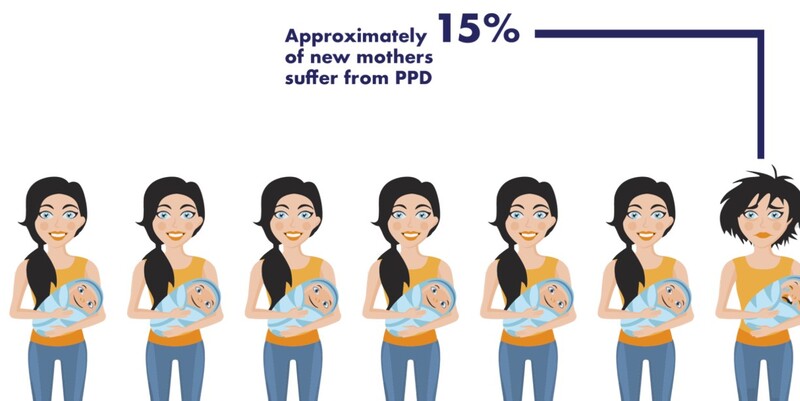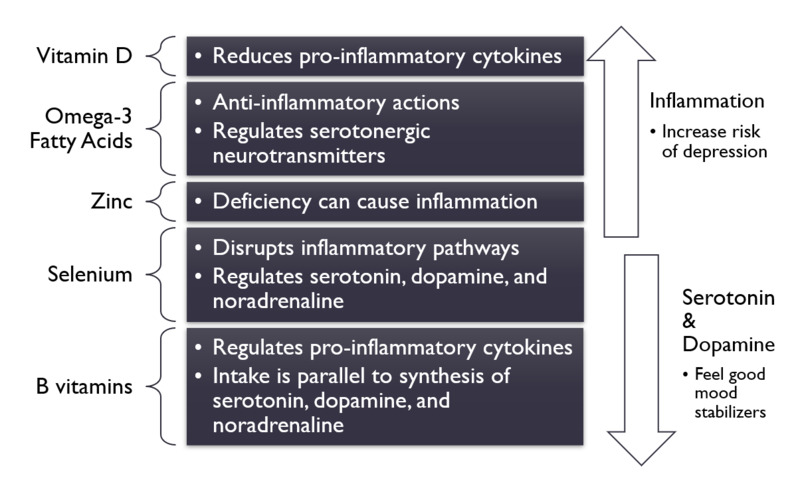Background: Postpartum Depression and Nutrition
Postpartum Depression
Postpartum depression (PPD) is defined as a mood disorder that can begin shortly after delivery of infant up to one year postpartum and may persist until treatment is given[1]. Women may have depressive symptoms up to two years postpartum[2], or elevated depressive symptoms three years postpartum[3].
The mother may experience feelings of misery, sadness, irritability, and anxiety which may be accompanied by loss of pleasure in completing tasks, fears of not being a good mother or being left alone with the child, or wanting to physically hurt themselves or their child[4].
The link between nutrients and depression
The “psychoneuroimmunology of depression” states specific nutrients play a role in regulating inflammatory cytokines and neurotransmitters associated with depression[5]. Few researchers have aimed to determine if micronutrient supplementation in the preconception period is associated with postpartum depression[6,7].
47% of women in the US do not consume adequate micronutrients during pregnancy[8]. Registered Dietitians promote taking supplements before conception, in addition to an overall healthful diet, to ensure adequate intakes and appropriate levels in the body for optimal pregnancy outcomes[9].
Vitamins and minerals are also known as micronutrients. The terms "vitamin supplement" or "multivitamin supplement" may be confusing because vitamin supplements contain more than just vitamins, but also minerals and even omega-3 fatty acids in most prenatal vitamins. Figure 1 below shows how these nutrients, found in most vitamin supplements, play a role in mediating depressive symptoms.



